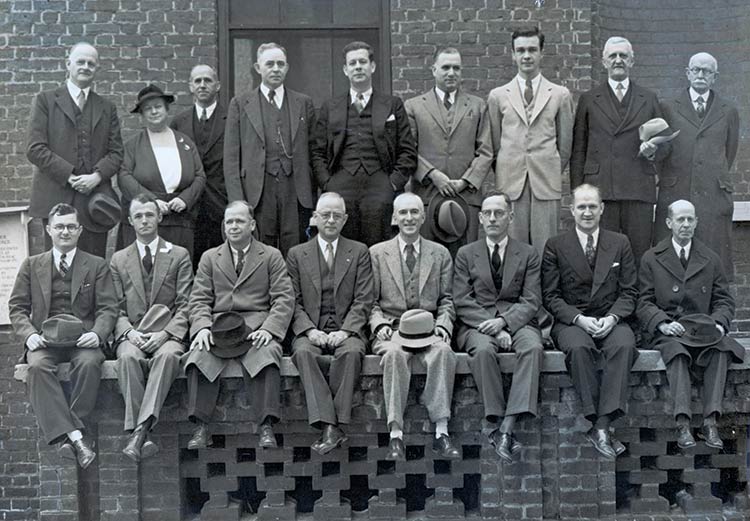
The Pioneers
For centuries, women have traditionally established and maintained homes but few ventured into the field of selling homes. Even when women sought paying jobs, they were typically clerical positions. But as the business of real estate grew, so did the female presence in the industry.
Many of the earliest women in real estate also were suffragettes. Eulalie Chafee Salley of Aiken, South Carolina, entered the profession in order to finance her passion for womens’ rights. She capitalized on wealthy northerners who traveled south for the winter by selling them homes. She catered to their specific needs, down to antique furniture for those homes and providing trained servants and catered meals.
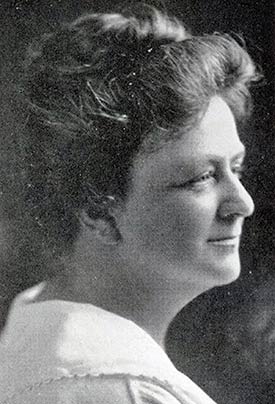
Still, women stayed home and raised families unless they needed additional income. As working outside the home became more acceptable, more women entered the workforce. Real estate was appealing not just for the income but because the work hours were flexible.
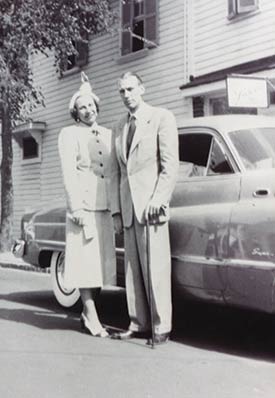
“She borrowed $500 from an aunt, rented an office for $35 a month and bought some Army surplus furniture,” Hartnett recalled.
She did indeed make some sales. Her first listing was the Sword Gate House on Legare Street.
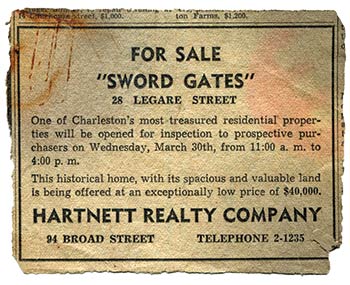
“It belonged to a descendant of Lincoln, Mary Lincoln Beckwith,” Hartnett said. “It sold for $47,500 in 1948.”
By contrast, that property was listed for $23 million a few years ago.
She also founded the Women’s Council of Realtors and served as chairman of the South Carolina Real Estate Commission. Her agency continues to this day, with Thomas F. Hartnett at the helm.
Edith Corry was born and raised in Charlotte, North Carolina, moving to Charleston with her husband. She worked at several clerical jobs before earning her real estate license in 1956. Corry became an agent of Calhoun Real Estate, which quickly grew to be one of the most active agencies in Charleston. Corry subsequently opened her own business, using the Calhoun name. In 1965, she and her husband purchased the William Ravenel mansion at 13 East Bay St., which was, at the time, the most expensive property in Charleston.
Teena Martindale, who serves as the director of professional standards for the Charleston Trident Board of Realtors, relates this about her mother: Jane Williams ran a steamship agency, a male-dominated business – she was the only woman in the business on he East Coast, in fact. When she left this job in the 1950s, the company replaced her with a man at double her former salary. Williams vowed that if she ever went to work again, it would be on commission so she could be paid what she was really worth. She turned to real estate and worked with Edith Corry at Calhoun Realty in the 1960s before opening Jane Williams Realty West of the Ashley. Williams became active in the real estate community and was the first woman president of the Charleston Board of Realtors in 1980.
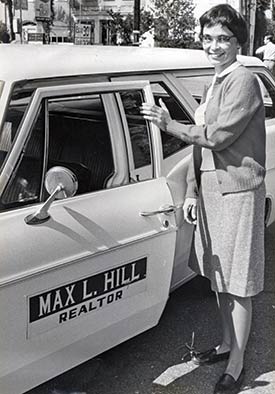
Patty Scarafile, chief executive officer of Carolina One Real estate, also ventured into the business in the 1960s. Real estate was ideal for military wives such as Scarafile, whose son Michael is now president of Carolina One.
Today, the ratio of male and female agents is about 50/50. The industry continues to grow by leaps and bounds, providing excellent income potential for all agents who are willing to work hard.

